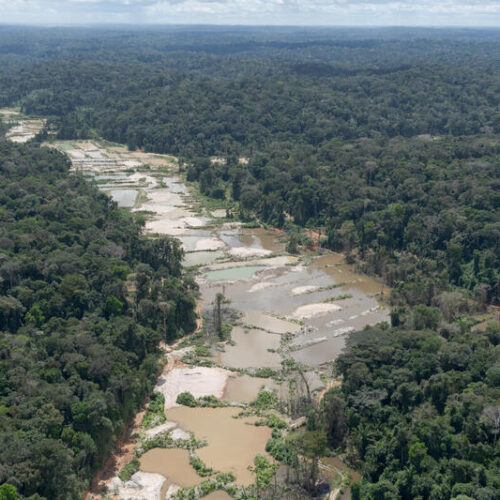Sônia Guajajara became the first minister at the Ministry of Indigenous Peoples on Wednesday (11). She is also the first indigenous woman to occupy a ministry. The ceremony took place at the Planalto Palace, in Brasília. According to TV Cultura, the auditorium was packed to watch the event, with the presence of president Luiz Inácio Lula da Silva (PT) and other members of the government.
Guajajara presented the ministry’s team, formed by Eloy Terena, Executive Secretary; Jozi Kaigang, Chief of Staff; Eunice Kerexu, Secretary of Environmental and Territorial Rights; Ceiça Pitaguary, Secretary of Environmental and Indigenous Territorial Management; Juma Xipaia, Secretary of Articulation and Promotion of Indigenous Rights; and Marcos Xucuru, Special Advisor to the MPI.
“I cannot fail to remember the relatives who were removed from our coexistence by the speech of the fascism that reigned in Brazil in recent years spilling without shame, much indigenous blood. Let us remember the strength of those who fell in the struggle like Paulino Guajajara Ivanilde, Janildo, Jael and Antônio Guajajara ali Uruê Auau, Daiane Gaingang, Estela Vera Guarani Carilar, Wellingto Ariane Oliveira and the girl Raissa. And so many other relatives victimized by illegal mining, by invasions of their territories. And by so many other actions and omissions of the State. Furthermore, I need to highlight the strength of Bruno Pereira and memories that all of our allies and allied defenders of the environment and human rights this brutal murder cannot remain unpunished”.
“If, before, demarcations were focused mainly on the preservation of our culture, new studies have been demonstrating that the maintenance of these areas has an even more comprehensive importance, being fundamental to the stability of ecosystems across the planet, ensuring quality of life, including in large cities. Hence the importance of recognizing the original rights of Indigenous Peoples over the lands where they live,” said Guajajara.
For Guajajara, the protection of biomes, resulting from the preservation of indigenous lands, conservation units and territories inhabited by traditional communities, is “essential” for any agricultural production. “It guarantees water, the presence of pollinating agents and many other factors without which nothing can be produced. Indigenous lands are important allies in the fight against global warming and fundamental for the preservation of our biodiversity,” he said.
The minister recalled that the Paris Agreement and the New York Declaration for Tropical Forests of the United Nations recognized the knowledge of traditional peoples and communities as scientific knowledge and as one of the “last alternatives to contain the climate crisis”. “It is necessary that this knowledge goes beyond international treaties, and be valued in practice, throughout the national territory, through local policies, considering the diversity of peoples, cultures, and territories,” she pointed out.
Minister Anielle Franco, of Racial Equality, also took office on Wednesday. The joint ceremony had several symbolic moments, marked by the sound of African culture and indigenous music. The National Anthem was sung partly in the Tikuna language by Djuena Tikuna, and partly in Portuguese by Marina Íris. The Terena people performed the Dança da Ema, or dança do Bate-pau, a ritualistic manifestation that consecrates great warriors.
According to Sônia Guajajara, one of the first measures she will take in charge of the ministry will be to move forward with the process of ratifying 13 indigenous lands that were already in the final stages of being recognized.Jota made a profile of all 37 ministers that are part of Lula’s government.
Sources:




















